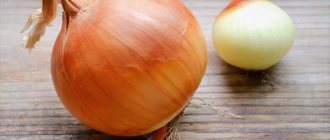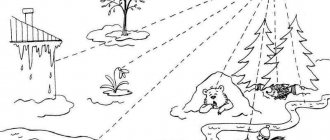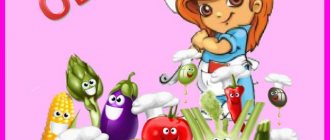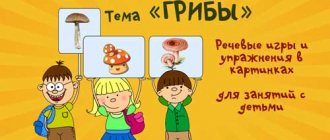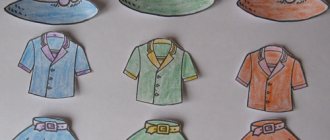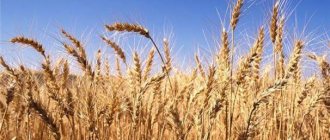Lesson notes on the lexical topic “Garden”
Mishina Ekaterina Sergeevna
Lesson notes on the lexical topic “Garden”
Goal: To consolidate knowledge about vegetables and fruits.
Objectives: 1. Correctional and educational
— Expansion of thematic dictionary;
— Formation of relative adjectives;
— Formation of the skill of writing proposals;
— Formation of nouns with diminutive suffixes;
— Development of coherent speech;
— Coordination of speech with movement;
— Development of phonemic hearing and fine motor skills;
— Development of visual, tactile and spatial perception, color perception.
3. Correctional and educational
— Expand knowledge about nature;
- Generate interest in the activity.
Equipment: Thematic picture, baskets, dummies of fruits and vegetables, object pictures, velvet paper, fleecy threads.
Progress of the lesson
I. Org. moment
The one who notices the mistake sits down, the children correct the mistakes of the speech therapist.
Square apple, green cucumber, blue banana, sweet lemon, yellow turnip, oval orange, blue tomato, yellow eggplant, etc.
- What two groups can these objects be divided into? (vegetables and fruits)
II. Lexico-grammatical games and exercises
1. Exercise "Garden - vegetable garden." Conversation on the painting:
— What do people do in the fall in their gardens and orchards?
— Which vegetables are dug with a shovel, which are cut with a knife, which are picked, which are pulled out of the ground?
—What fruits are picked from trees?
— How are vegetables and fruits stored?
2. Game exercise “Harvest”. Development of spatial perception and color perception. Children, on the instructions of the speech therapist, place vegetables and fruits in three baskets by color:
In the left basket - only yellow vegetables and fruits,
In the right basket - only red vegetables and fruits,
The basket in the middle contains only green vegetables and fruits.
3. Game exercise “Wizard”. Formation of nouns with diminutive suffixes.
- This is a lemon. I turn it into a lemon;
- This is pepper. I turn it into...;
- This is an onion. I turn it into... ;
- This is a plum. I turn it into... etc.
Finger gymnastics
Cabbage We chop and chop cabbage, We salt and salt cabbage, We three and three cabbage, We press and press cabbage. (Imitation of movements.)
How many beds are there in the garden? In Fedora's garden there are tomatoes growing in the beds, and in Filat's garden there are a lot of different lettuces. Grandma Fyokla has four beds of beets. Uncle Boris has a lot of radishes. Masha and Antoshka have two rows of potatoes. Alternately bend your fingers for every two lines of text.
“Harvest” Glad, two, three, four, five - Alternately, clap your palms, then your fists. Let’s help you collect the harvest. Repeat the exercise after me. Bend your fingers for each name of the vegetable. In it, the sound T came to the garden bed. Here's a pumpkin, and here's a tomato. Here is cabbage, here is lettuce, caraway seeds, potatoes, artichokes and parsley roots. Everything that we have grown, We alternately clap our palms and then our fists. We will eat until spring.
Logorhythmic exercises (coordination of speech and movement)
Potatoes We dug up potatoes, picked cucumbers from the ridge, pulled out all the carrots, deftly cut the cabbage and brought it to you as a gift in a basket from the ground. (Squats, bends, imitation movements.)
Vegetable Garden Repeat the exercise after me (Step in place.) We came to our garden bed. Here's a pumpkin, and here's a tomato. (Extend your arms to the left, to the right.) Here is cabbage, here is lettuce. (Bend over to your left leg, then to your right.) Cumin, potatoes, artichoke (Straighten up. Hands on your waist, to your shoulders, up.) And parsley root. (Lower your hands.) Everything that we have grown, (Spread your arms to the sides.) We will eat until spring. (Hands down, straighten up.)
Source
Games and exercises
Game “Greedy” (children 4-8 years old) Add the word “my”, “mine”, “mine” to the name of each vegetable (my carrots, my cucumber)
Game “One - Many” (children 4-8 years old) . Up to 5 years, the version of the game is shortened (without a lot of words). Tomato - tomatoes - a lot of tomatoes potatoes - potatoes - a lot of potatoes (potatoes) eggplant - eggplants - a lot of eggplants pepper - peppers - a lot of peppers zucchini - zucchini - a lot of zucchini pumpkin - pumpkins - a lot of pumpkins carrots - carrots - a lot of carrots beets - beets - a lot beets (beets - meaning “many pieces”) onion (bulb) - onion (bulbs) - a lot of onions (bulbs) turnip - turnips - a lot of turnips radish - radishes - a lot of radishes (radish - meaning "many pieces") garlic - garlic - a lot of garlic (many heads of garlic) parsley - parsley - a lot of parsley cucumber - cucumbers - a lot of cucumbers pepper - peppers - a lot of peppers (meaning “many pieces”) head of cabbage - heads of cabbage - many heads of cabbage pea - peas - many peas pod - pods - a lot of pods
Exercise “Name it affectionately” (for children over 4 years old) Cucumber - cucumber - cucumbers tomato - tomato - tomatoes potatoes - potatoes - potatoes eggplant - eggplant - eggplants pepper - pepper - peppers pumpkin - pumpkin (pumpkin) - pumpkins radish - radish - radishes carrots - carrots (carrots) - carrots beets - beets (beets) - beets onions (bulbs) - onions (onions) - turnip bulbs - turnips (turnips) - turnips garlic - garlic - garlic parsley - parsley - parsley dill - dill - dill cabbage - cabbage - cabbage beans - beans - beans
Game “Say the other way around” (children from 6 years old) A good garden bed - ……. bad bed Old potatoes - ...... new potatoes Heavy bag - ...... light bag Large harvest - ………. small harvest Clean carrot - ……… dirty carrot Ripe tomato - ...... unripe tomato
Lexical topic “Garden, vegetable garden.” Automation of sound [C].
Olga Nikolskaya
Lexical topic “Garden, vegetable garden.” Automation of sound [C].
Form the semantic field of the word SAD, develop the semantic connections of words.
Practice practical modification and formation of words.
Strengthen the pronunciation of the sound [C] in syllables , words, sentences, phrases, coherent statements;
Continue to develop phonemic processes: hearing, perception, ideas; practice sound-syllable analysis ;
Develop logical thinking.
To develop self-control in children over their speech and the skills of consciously correct pronunciation of sounds .
Create an atmosphere of friendly communication and comfort in class.
Equipment: picture of a gardener, diagram of sound , picture of a garden, vegetable garden , ball, picture with syllables.
Lexical topic “Vegetables. Garden"
We enrich and activate our vocabulary. We consolidate knowledge of nouns : salad, soup, juice, cucumber, tomato (tomato), potatoes, beets, carrots, onions, turnips, cabbage, radishes, peppers, garlic, eggplant, zucchini, squash, greens, parsley, dill, radish, pumpkin , beans, beans, peas, pods, tops, roots, fruits, seeds, tubers, leaves, head of cabbage, salad, beetroot, vinaigrette, juice, bag, box, path, harvest, vegetable garden, bed, soil, planting, watering; adjectives: colorful, large, long, short, triangular, oval, ripe, unripe, ripe unripe, raw, boiled, hard, soft, bitter, sweet, sour, salty, juicy, healthy, light, heavy, fresh, large, small , red, green, yellow, ripe, unripe, tasty, tasteless, sweet, sour, bitter, salty, pickled, canned, raw, boiled, healthy, large, small, round, oval, elongated, oblong, smooth, ripe, fragrant , aromatic, juicy, vegetable; verbs: plant, care, grow, sow, loosen, ripen, water, ripen, collect, sprinkle, pull out, dig, cut, wash, rub, cook, stew, fry, eat, crunch, prepare, salt, ferment, preserve, pickle, grow, grow, ripen, water, weed, clean, dig, pick, pull out, collect, dry, squeeze, rub, treat, clean, share; adverbs: high, low, tasty, tasteless, healthy, harmful.
Preview:
Recommendations for parents on vocabulary topics
Dear parents, consider natural vegetables, fruits, berries with your child;
- repeat general words - “vegetables”, “fruits”, “berries”;
- pay attention to their shape, size, color, smell and taste;
- tell us where and how vegetables, fruits and berries grow (in the garden, in the garden, on the ground, in the ground, on bushes, in trees);
- if possible, go with your child to the vegetable market and see what vegetables, fruits and berries are sold there;
— tell your child what dishes can be prepared from vegetables, fruits and berries;
— talk with your child about the work of collective farmers in the fields in the fall.
Play. 1. Didactic game “The fourth odd one.”
Apple, pear, potato, lemon.
Carrots, plums, cabbage, peas.
Raspberry, strawberry, orange, blueberry.
Invite your child to make up a descriptive riddle about a vegetable, fruit or berry: “Oval, hard, yellow, sour, put in tea.” (Lemon).
Invite your child to recognize vegetables, fruits, and berries by touch with his eyes closed and by smell.
What is this? Where does it grow? Appearance. What does it taste like? What is made from it?
Apple, lie, apple tree, under. Potatoes, grow, vegetable garden, c. Strawberries, plate, lie, on.
Compose complex sentences according to the model.
Autumn has come. Collective farmers dug up potatoes. They removed onions, beets, carrots, cucumbers and turnips from the collective farm fields. The fields became empty. Collective farmers reaped a large harvest of vegetables.
1) How can you call onions, carrots, beets, potatoes, cucumbers in one word?
2) Where do vegetables grow?
3) What do collective farmers do in the garden in the fall?
